

Tao Te Ching
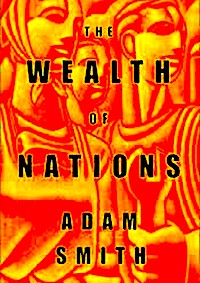
Wealth of Nations
By Adam Smith
One of the world's first major books describing and speculating on what creates a country's economic wealth and success, The Wealth of Nations became one of the biggest influences on global economics. Although widely referenced today, most politicians use it to support their political prejudices rather than really understanding what Adam Smith actually wrote. He condemned the slave trade, British colonial policy, and recommended giving the British colonies more representation — a suggestion that economist Ronald Coase believed if followed would have resulted in "America now ruling England, and we [in America] today celebrating Adam Smith not simply as the author of the Wealth of Nations, but hailing him as a founding father." With over 36,000 references, the Wealth of Nations became the second most quoted social science book published before 1950 (after Das Kapital). Through a close friendship with Benjamin Franklin and a major influence on Thomas Jefferson and James Madison who wrote most of the US Constitution, this book also had a major impact on the founding and philosophy of the United States.
Themes
Quotes from Wealth of Nations
“A great stock, though with small profits, generally increases faster than a small stock with great profits. Money, says the proverb, makes money. When you have a little, it is often easier to get more. The great difficulty is to get that little.”
Chapters:
Comments: Click to comment
“A merchant, it has been said very properly, is not necessarily the citizen of any particular country.”
Chapters:
Comments: Click to comment
“According to the system of natural liberty, the sovereign has only three duties... first, the duty of protecting the society from violence and invasion; second, the duty of protecting every member of society from every other member of it; third, erecting and maintaining certain public works and institutions... because the profit could never repay the expense to any individual or small number of individuals”
Chapters:
Comments: Click to comment
“All for ourselves, and nothing for other people, seems, in every age of the world, to have been the vile maxim of the masters of mankind.”
Chapters:
Comments: Click to comment
“All systems either of preference or of restraint... retards, instead of accelerating, the progress of the society towards real wealth and greatness; and diminishes, instead of increasing, the real value of the annual produce its land and labor.”
Chapters:
Comments: Click to comment
“allowing every man to pursue his own interest in his own way, upon the liberal plan of equality liberty, and justice”
Chapters:
Comments: Click to comment
“any new law or regulation of commerce ought always to be listened to with great precaution... It comes from an order of men, whose interest is never exactly the same with that of the public, who have generally an interest to deceive and even to oppress the public, and who accordingly have, upon many occasions, both deceived and oppressed it.”
Chapters:
Comments: Click to comment
“Avarice and injustice are always shortsighted, and they did not foresee how much this regulation must obstruct improvement, and thereby hurt in the long-run the real interest of the landlord.”
Chapters:
Comments: Click to comment
“Both in ancient Egypt and Indostan, the whole body of the people was divided into different castes... the caste of the farmers and laborers was superior to the castes of merchants and manufacturers... Though both were extremely populous, yet, in years of moderate plenty, they were both able to export great quantities of grains”
Chapters:
Comments: Click to comment
“Corn is a necessity, silver only a superfluity.”
Chapters:
Comments: Click to comment
“If any of the provinces of the British empire cannot be made to contribute towards the support of the whole empire, it is surely time that Great Britain should free herself from the expense of defending those provinces in time of war, and of supporting any part of their civil or military establishments in time of peace, and endeavor to accommodate her future views and designs to the real mediocrity of her circumstances.”
Chapters:
Comments: Click to comment
“It appears, accordingly, from the experience of all ages and nations, I believe, that the work done by freemen comes cheaper in the end than that performed by slaves”
Chapters:
Comments: Click to comment
“It is not from the benevolence of the butcher, the brewer, or the baker that we expect our dinner, but from their regard to their own interest. We address ourselves, not to their humanity, but to their self-love”
Chapters:
Comments: Click to comment
“Labor was the first price, the original purchase-money that was paid for all things. It was not by gold or by silver, but by labor, that all the wealth of the world was originally purchased... Labor, therefore, is the real measure of the exchangeable value of all commodities.”
Chapters:
Comments: Click to comment
“No society can surely be flourishing and happy, of which the greater part of the members are poor and miserable. It is but equity, besides, that they who feed, cloth and lodge the whole body of the people, should have such a share of the produce of their own labor as to be themselves tolerably well fed, clothed, and lodged.”
Chapters:
Comments: Click to comment
“Our merchants and master-manufacturers complain much of the bad effects of high wages in raising the price, and thereby lessening the sale of their goods both at home and abroad. They say nothing concerning the bad effects of high profits. They are silent with regard to the pernicious effects of their own gains. They complain only of those of other people.”
Chapters:
Comments: Click to comment
“Science is the great antidote to the poison of enthusiasm and superstition.”
Chapters:
Comments: Click to comment
“That part of the produce of the land which is thus necessary for enabling the farmer to continue his business ought to be considered as a fund sacred to cultivation, which, if the landlord violates, he necessarily reduces the produce of his own land, and in a few years disables the farmer”
Chapters:
Comments: Click to comment
“The difference between the most dissimilar characters, between a philosopher and a common street porter, for example, seems to arise not so much from nature, as from habit, custom, and education... By nature a philosopher is not in genius and disposition half so different from a street porter, as a mastiff is from a greyhound”
Chapters:
Comments: Click to comment
“The establishment of any new manufacture, of any new branch of commerce, or any new practice in agriculture, is always a speculation, from which the projector promises himself extraordinary profits... If the project succeeds, they [the profits] are commonly at first very high. When the trade or practice becomes thoroughly established and well known, the competition reduces them to the level of other trades.”
Chapters:
Comments: Click to comment
“Whenever the legislature attempts to regulate the differences between masters and their workmen, its counsellors are always the masters. When the regulation, therefore, is in favor of the workmen, it is always just and equitable; but it is sometimes otherwise when in favor of the masters.”
Chapters:
Comments: Click to comment
Related Lineages (1 lineages)
Quotes about Wealth of Nations (6 quotes)

“What an excellent work is that with which our common friend Mr. Adam Smith has enriched the public! An extensive science in a single book, and the most profound ideas expressed in the most perspicuous language”
Comments: Click to comment
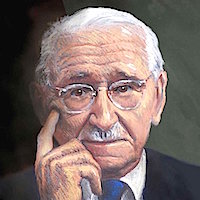
“Smith's work marks the breakthrough of an evolutionary approach which has progressively displaced the stationary Aristotelian view. The nineteenth-century enthusiast who claimed that the Wealth of Nations was in importance second only to the Bible has often been ridiculed; but he may not have exaggerated so much.”
Comments: Click to comment
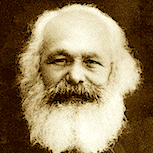
“What strikes one here above all is the crudely empirical conception of profit derived from the outlook of the ordinary capitalist, which wholly contradicts the better esoteric understanding of Adam Smith.”
Comments: Click to comment
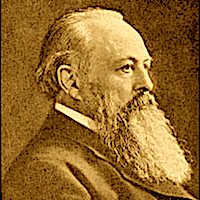
“a scientific backbone to liberal sentiment... the classic English philosophy of history.”
Comments: Click to comment
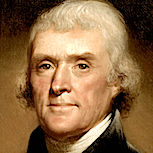
“[on] the subjects of money and commerce, Smith's Wealth of Nations is the best book to be read”
Comments: Click to comment
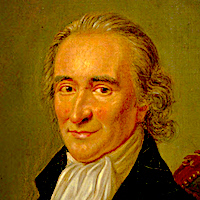
“Had Mr. Burke possessed talents similar to the author of 'On the Wealth of Nations, he would have comprehended all the parts which enter into, and, by assemblage, form a constitution.”
Comments: Click to comment
Comments (0)